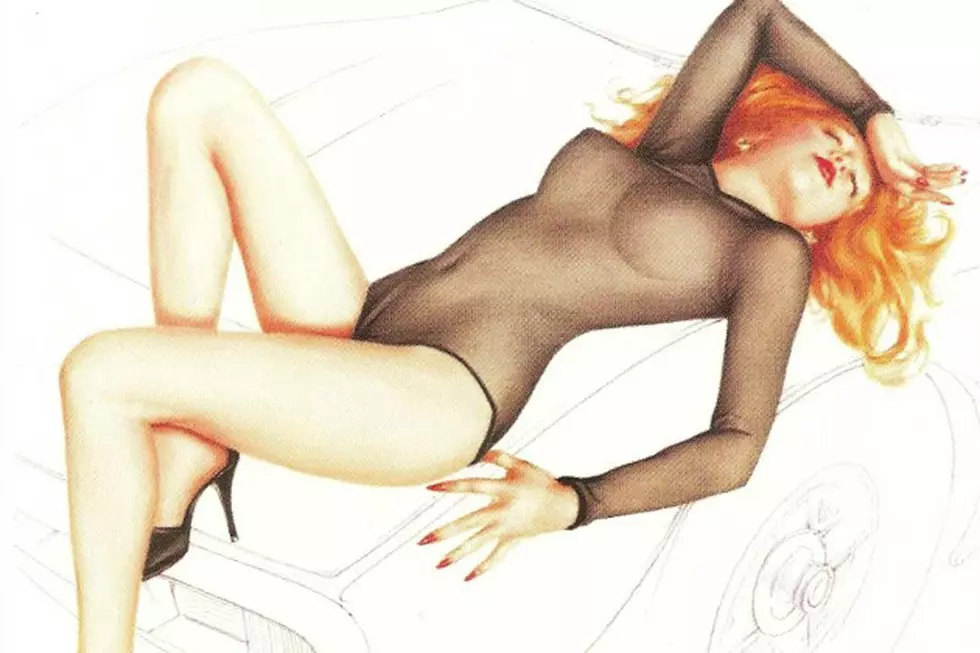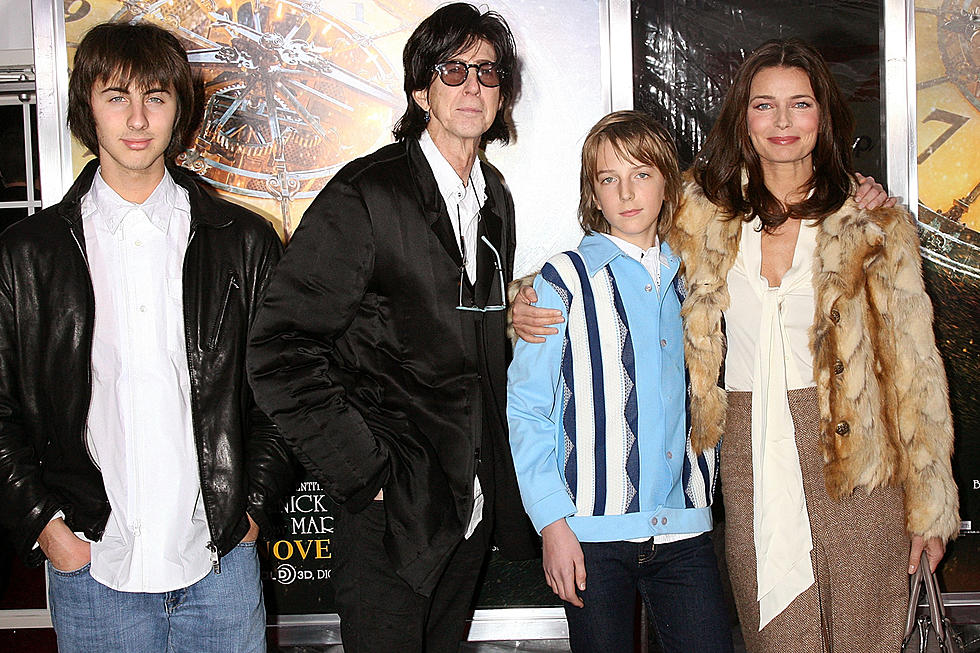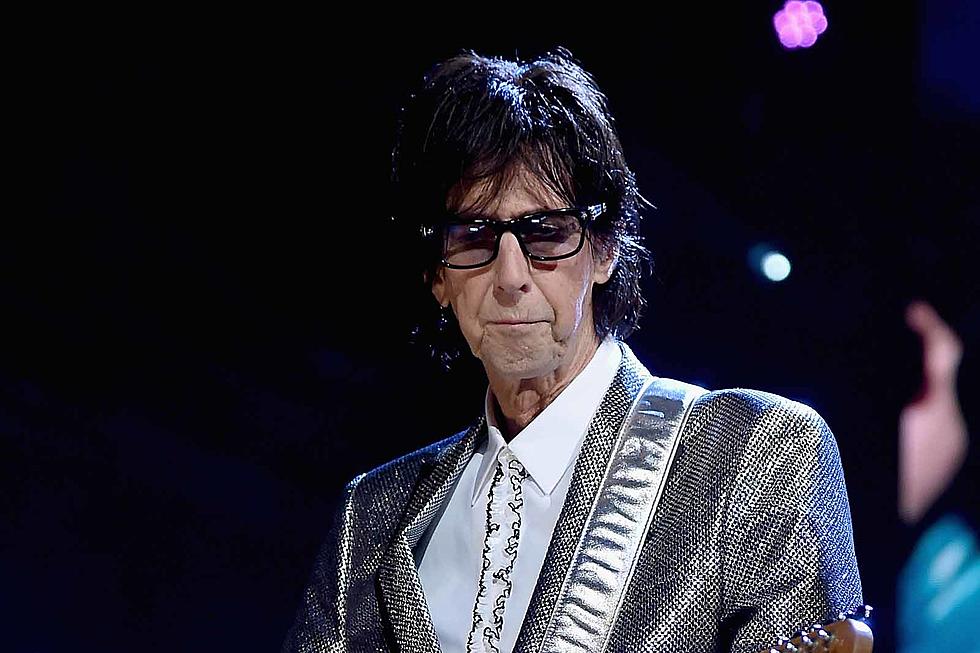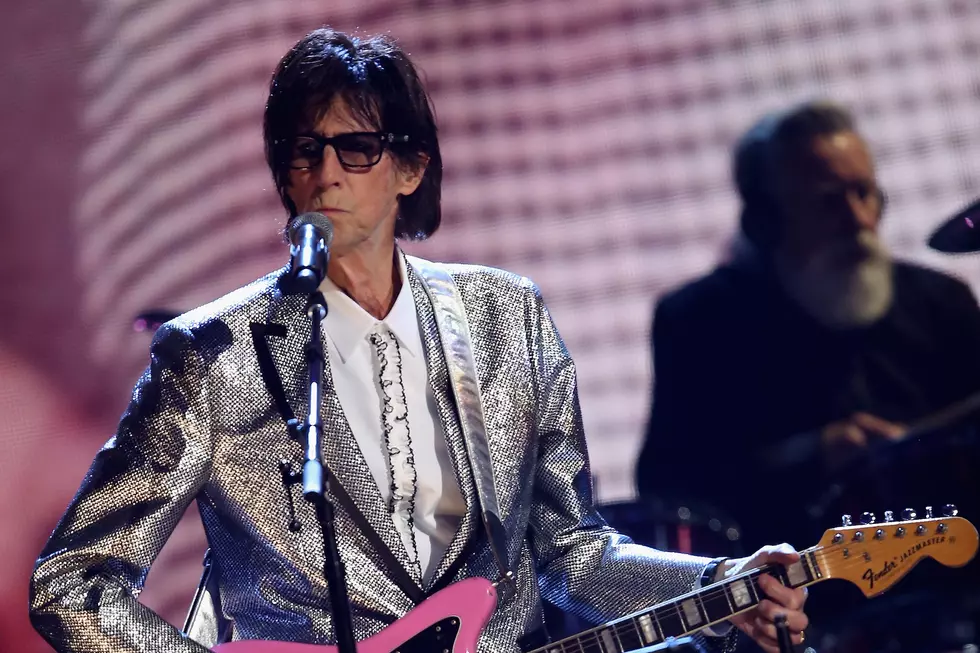
Why the Cars Roughed Things Up on Their Second LP, ‘Candy-O’
Plenty of bands struggle for years to make the big time, only to find it difficult to come up with new material after scoring a hit with their first album. The Cars had the opposite problem: their self-titled 1978 debut persistently lingered in the Top 40 while the band impatiently waited to release a follow-up.
"At first, [the band's label] Elektra wanted to hold it back some, but we told them there was no way," guitarist/singer Ric Ocasek scoffed in a 1979 interview. "Because if they were going to hold that back, they were going to hold us back – and we can't just sit around and be held back."
Released on June 13, 1979, the sophomore LP Candy-O found the group reuniting with producer Roy Thomas Baker and delivering a slightly rougher variation on the debut's heavily multi-tracked sound.
Lest fans think the new album's similarity to its predecessor was proof of a dearth of new ideas, Ocasek made it clear he was already thinking ahead. "I'll probably write a whole new album before we get the next one done; I'm going two albums ahead of them," he continued. "I could put out more albums a year, but it's not necessary and it wouldn't help us any. ... In some areas of the country, like the South, they've just started playing the first record in the last two months. They think it just came out."
Ocasek was familiar with their debut's rollout, having just spent months on tour trying to promote it. The experience not only gave him a close-up view of which parts of the country were playing The Cars, it gave him a new familiarity with rock star etiquette.
"We played one gig with Styx, which I can't fuckin' handle. All we did for two weeks after that was sing to each other in fake-operatic voices, back in the dressing room," Ocasek snickered. "We did open for Foreigner – not that we particularly care for their music, either, but at least they were nice guys. They were the only band to give us a sound check."
Listen to the Cars Perform 'Let's Go'
It sounds like Ocasek was taking unwarranted potshots, but he was really just being bluntly honest: He didn't care for Styx or Foreigner's music, but at least they were in pretty good company. As he explained, Ocasek wasn't even a fan of Roy Thomas Baker's famous clients Queen, although that didn't keep him from being able to appreciate the skill that went into their records.
"We were ready to [produce] our own album if we couldn't have found a producer. But I never had a real producer before Roy; all I ever knew was what I stumbled on," Ocasek later admitted. "So, I was interested to have someone who's been doing it for 15 years as opposed to my five. I didn't particularly care for his productions, except on Queen. Now, Queen is not one of my favorite bands, but you can't help noticing a production like 'Bohemian Rhapsody,' the clarity and the way it's put down. To me, it's still an art form.
"I knew what I could do," Ocasek added. "I wanted to see what someone else could do. He turned out to be a great friend, and taught us a lot about musical technique. He never infiltrated arrangements or musical ideas."
When it came time to track Candy-O with Baker, the group continued to give him room to apply his style to their sound – within reason. "Well, some of the things on that first album that we thought were a little slick, we toned down on the second, like on the background vocals," Ocasek added. "But if we were going to rely on the producer we had hired, there was no reason to try and change him. On the second album, it was easier to say, 'Roy, let's not do the multi-tracked harmonies this time.'"
Ocasek would later claim responsibility for just about everything on the Cars' records. Still, while discussing Candy-O, he described a much more democratic approach.
"When one of my songs goes to the band in barest cassette form, we sit around and talk about it. If I'm outvoted, we don't do it," Ocasek explained. "We almost didn't include 'Double Life' on the new album" it had been dropped.
"I think everybody in the Cars is open-minded and creative enough that they would do anything: Nobody's holding anything back," he continued. "Everybody appreciates the more radical, experimental kinds of music and likes it. But sometimes, when you're put together with five pieces, things are not as minimal as they could or should be. Everybody's developed a unique personal style, and we rely on their input. If they did it, it's good enough."
Listen to the Cars Perform 'It's All I Can Do'
Candy-O was plenty good enough for the band's widening circle of fans, who sent the album to No. 3 on the Billboard album chart. The leadoff single, "Let's Go," also rose to No. 14. By the end of the year, the project was certified platinum for sales of over a million copies, adding to a string of hit records that continued more or less unbroken for most of the '80s.
Eventually, they'd grow to become one of rock's bigger and more reliably successful groups, releasing some of the decade's most radio-friendly singles, but Ocasek insisted that commercial potential was never the Cars' greatest concern.
"We really didn't have a formula down," Ocasek said when reflecting on the first album's runaway success. "It was exciting to do it, just to be with those guys. It's very rare to find people you feel comfortable with, where there's not a lot of misconceptions and egos popping up. ... We weren't prepared for the kind of sales we're getting now. If we'd sold 25,000 albums, we would have been happy. Success is kind of funny. It's the sort of thing you want, and then when you get it, you wonder what you wanted it for. But you can't be doing it for the sake of success at the beginning, and we decided back then that success wasn't our reason for doing it."
They'd eventually lose track of their reasons for doing it and fell apart following the release of 1987's relatively indifferently received Door to Door album. They'd spend decades apart, enduring the death of bassist Benjamin Orr and the brief existence of the New Cars (which found Todd Rundgren stepping in for Ocasek, much to the latter's chagrin) before unexpectedly reuniting. Move Like This, released in 2011, ended up offering a reminder of past glories for fans and Cars alike.
"This record was a great experience. I certainly wouldn't mind doing more records," the late Ocasek told Rolling Stone back then. "I think a couple of the guys feel that way too. I know [drummer David Robinson], when the record was done, almost felt sad. He said, 'Can't we just do some more? Can't we start on another one now?'"
See the Cars Among Rock's Sexiest Album Covers
More From Ultimate Classic Rock









